HSE University and Consortium Partners Aim to Take Human Capital Studies to New Level
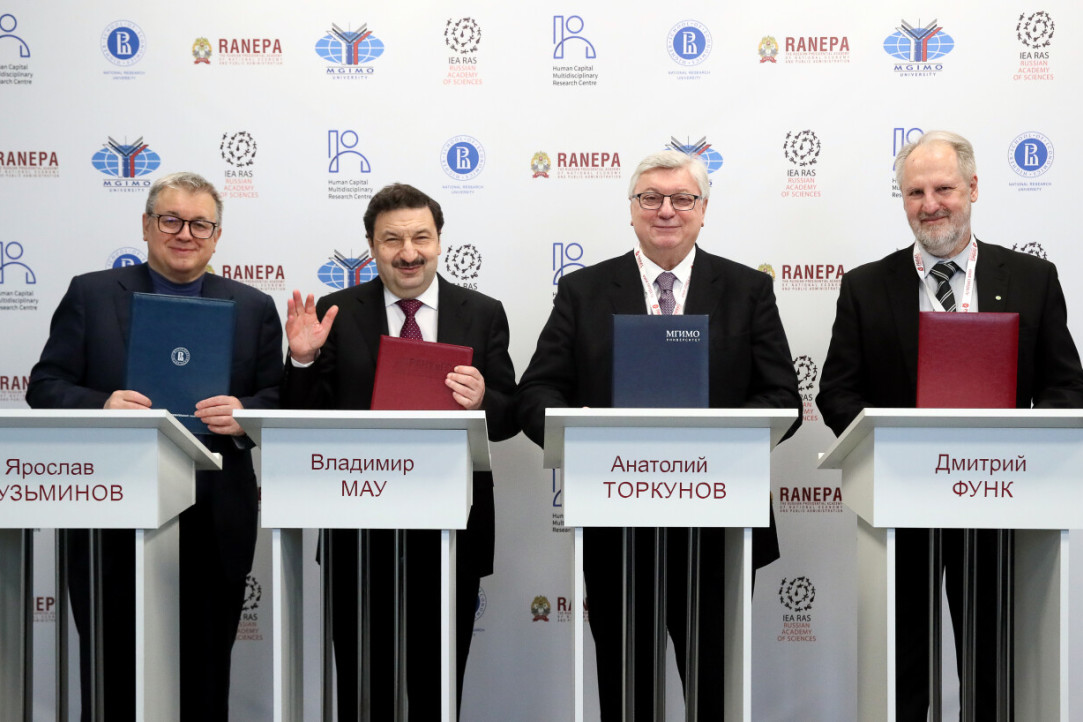
On January 14, at the 2021 Gaidar Forum, which was held at the Russian Presidential Academy of National Economy and Public Administration (RANEPA), HSE University Rector Yaroslav Kuzminov and leaders of three other institutions signed an agreement to establish the Human Capital Multidisciplinary Research Center (HCMRC). The other co-signers were RANEPA Rector Vladimir Mau, MGIMO University Rector Anatoly Torkunov, and Dmitry Funk, Director of the N.N. Miklukho-Maclay Institute of Ethnology and Anthropology of the Russian Academy of Sciences. The Center will focus on that key areas of human capital studies that are of current global importance.
The Human Capital Multidisciplinary Research Center is one of Russia’s world-class national research centres conducting research and development in the country’s priority areas in scientific and technological development. The proposal for the Center was among the winners selected in a competition held by Russia’s National Science Project. (The list of winning proposals were confirmed by the order No. 2744-r of the Government of the Russian Federation on October 24, 2020.) It was the first time a proposed research center in the social sciences and humanities received approval. Rather than areas such as physics or mathematics, the Center will focus on human research and issues of social development.
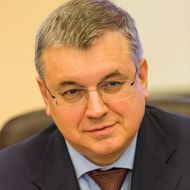
Yaroslav Kuzminov, HSE University Rector
Traditionally, disciplines such as mathematics, physics, the natural sciences, and energy have been viewed as areas in which Russia has historically had an advantage. As for the social sciences and humanities, there is a prevailing view in society that we very much lag behind. In reality, this is not the case. Over the past 10-15 years, Russia has taken great strides in these fields. We have significantly improved our positions in the global rankings in the social sciences in terms of publications in leading journals, and humanities programmes are close behind. This is unexpected yet also natural. After all, the transition from a totalitarian-distributive society to a free society based on market and democratic principles provides an immensely rich basis for sociological, economic, and anthropological studies, as well as research in the humanities.
As Yaroslav Kuzminov noted, the work of a world-class research centre has two dimensions. First, there are the ideas and products that researchers create. Secondly, there are the tools that are provided to researchers around the world — in this case, tools that are used by those who study transitional societies and economies and need free access to the objects of their research. These tools include the Russian Longitudinal Household Survey, which has been conducted since 1993; an archive of sociological data that has been replenished for over ten years; iFORA, a big data mining system containing over 350 million documents; and a cluster of unique equipment formed by the HSE Institute for Cognitive Neuroscience.
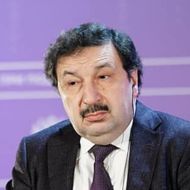
Vladimir Mau, RANEPA Rector
The Human Capital Multidisciplinary Research Center is not a token association. It grew out of the collaboration of four organizations — their research teams and individual researchers carrying out research projects in different areas. We have to respond to the global challenges facing humanity. Within the consortium, priority areas and major research projects have been identified. Each area has a long history and great achievements. One of the performance indicators of the consortium will be publication activity and the practical relevance of its developments. Karl Marx said that there is nothing more practical than a good theory. I have no doubt that our proposals will be used in practice.
The Center's research encompasses seven critical areas of human capital research:
The social and humanitarian dimensions of human capital;
Demography and active ageing;
Employment and the formation of skills and competencies;
Humanity in the age of technological transformations;
Neurocognitive mechanisms of social behaviour;
Natural and climatic determinants of sustainable development;
Human capital and security in the global world.
According to Dmitry Funk, Director of the Institute of Ethnology and Anthropology of the Russian Academy of Sciences, Russian expertise in the social sciences and humanities is no less developed than in physics, chemistry, or biology. It has gone so far that it is often difficult for researchers of the same discipline to understand each other. Scholars must therefore learn to ‘develop explanatory models,’ and this will foster synergy and coherence in their research.
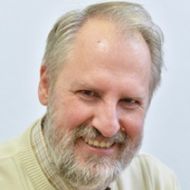
Dmitry Funk, Director of the Institute of Ethnology and Anthropology of the Russian Academy of Sciences
I am very glad that our institute joined this consortium. This is an exemplary model of collaboration and the birth of something new, based on the union of academic and university research. One of the most important tasks facing the team of our institute is to try to understand the connection between diversity and sustainable development and whether the same explanatory model operates in all areas and at all times. If we get closer to answering this question, it will be a significant contribution to the realization of this joint project.
According to MGIMO Rector Anatoly Torkunov, about 40 educational programmes connected with the Human Capital Multidisciplinary Research Center are expected to be opened. Programmes will fall into one of three categories: Bachelor’s and Master’s programmes that focus on rapidly developing areas of human capital studies; programmes that provide practical training to ensure the introduction of breakthrough results in the educational process; and supplemental qualification enhancement and training. All programmes are implemented with the participation of both Russian and international specialists.
A particular aim of the Center will be to collaborate with universities of other regions of Russia and CIS countries in both research and the implementation of joint network programmes. The regional campuses of the universities participating in the consortium will take part in this work.
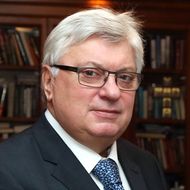
Anatoly Torkunov, MGIMO Rector
The creation of this consortium is an excellent example of a collaborative relationship between educational and research organizations that has a wide and deep international dimension in terms of soft power and the advancement of Russian social scientific and humanities research. Our universities have more than 6,000 international students and more than 40 international laboratories. The universities of this consortium collectively host more than 100 international conferences every year. Our teachers and researchers are experts from international organizations, from the UN to the World Bank. Foreign researchers representing about 45 universities from different countries will also take part in the project.
According to Yaroslav Kuzminov, the situation with emerging generations of scholars in the social sciences and humanities is better than, for example, that in physics, engineering, or computer science, where there is a large gap in quality due to the fact that scientists are often tied to their respective laboratories. For the humanities, this kind of dependence is less typical, so now the number of people from different cities of Russia who want to conduct rigorous research has sharply increased.
According to the heads of all four organizations participating in the consortium, there are already enough qualified researchers to make the Human Capital Multidisciplinary Research Center a success. However, this does not negate the need to attract foreign specialists and train young people who will join the existing teams.
See also:
‘Human Capital Has Been the Subject of Discussion in a Variety of Scientific Venues’
The work results of world-class research centres were presented at the Government Coordination Centre. Leonid Gokhberg, First Vice Rector of HSE University, spoke about the main scientific results of the Human Capital Multidisciplinary Research Centre.
‘Two Interdisciplinary Research Centres Can Create New Synergy between Themselves’
In mid-June 2024, HSE University and the Joint Institute for Nuclear Research in Dubna held a joint working meeting. This meeting was the first under an agreement signed by the research centres in 2024, when HSE University and JINR agreed to jointly participate in experiments of the NICA megascience project, as well as interact in the field of theoretical and mathematical physics, information technology, and personnel training. These issues were the focus of the first working meeting. Details are in the JINR report.
Human Capital Multidisciplinary Research Centre Opens Exhibition at Technoprom 2023 Forum
On August 22, 2023, the Human Capital Multidisciplinary Research Centre (HCMRC) opened an exhibition as part of the Technoprom 2023 forum in Novosibirsk. On the opening day, more than 300 people visited the stand, of which more than 50 took part in an interactive ‘anthropologist simulator’ and a visual attention test. The HSE News Service reports on the exposition and the feedback received by the experts.
HSE University and Agency for Strategic Initiatives Sign Cooperation Agreement
HSE University and the Agency for Strategic Initiatives (ASI) have agreed to cooperate in the development of new technologies, the digital transformation of the economy, and the social development of the country. The agreement was signed by HSE University Rector Nikita Anisimov and ASI Director General Svetlana Chupsheva at the St Petersburg International Economic Forum.
HSE University and Kamchatka State University Sign Cooperation Agreement
On April 17, HSE University and Vitus Bering Kamchatka State University signed a cooperation agreement at the Durasov House on Pokrovsky Boulevard. The new partnership will include joint expeditions, research, and educational activities, including a permanent expedition to research and preserve the languages and cultures of Kamchatka.
Human Capital Multidisciplinary Research Centre Presents Results to International Supervisory Board
The Human Capital Multidisciplinary Research Centre, established in 2020 and coordinated by HSE University, recently held a session of the International Supervisory Board and presented work results for the period of 2020-2022 along with plans for 2023-2025, including fundamental and applied research in the field of human development, creation of unique empirical databases for the development of evidence-based social and economic policies, and the introduction of digital approaches in humanities and social sciences.
‘We Managed to Create a Unique Space for Inter-University Cooperation’
HSE University and the Russian Orthodox Church Saints Cyril and Methodius Institute for Postgraduate Studies (IPS) have celebrated a decade of cooperation and signed an agreement to continue their collaboration. Over the years, 45 people have graduated from each of the two joint master's programmes, an inter-campus minor is operating, and the HSE Centre for Religion and Law has been established.
HSE University Studies Human Capital as Part of Consortium
The Human Capital Interdisciplinary Research Centre (HCIRC) is a world-class research centre comprising a consortium of HSE University, RANEPA, MGIMO University, and the Institute of Ethnology and Anthropology of the Russian Academy of Sciences (RAS). Its work was highly rated by the RAS in 2021. Lilia Ovcharova, HSE University Vice Rector and initiator of the centre’s creation, talked to the HSE News Service about integration in international studies on active ageing, creating a database on development trends in human potential, studying the effects of digitalisation, and the centre’s priority activities for the future.
HSE Campus in Perm to Promote Quality of Education in the Region
As part of his official visit to Perm, HSE Rector Nikita Anisimov met with Dmitry Makhonin, Governor of Perm Krai. They signed a cooperation agreement between HSE University and the Government of Perm Krai. Key decisions made during the meeting include the creation of a HSE Lyceum in Perm for 10th and 11th-graders, with the first enrolment in 2022.
HSE University Signs Cooperation Agreement with Russia’s Federation Council
The parties agreed to cooperate on issues related to the improvement of legislation and law enforcement practices in an area that is the subject of research activity at HSE University.


